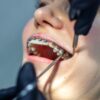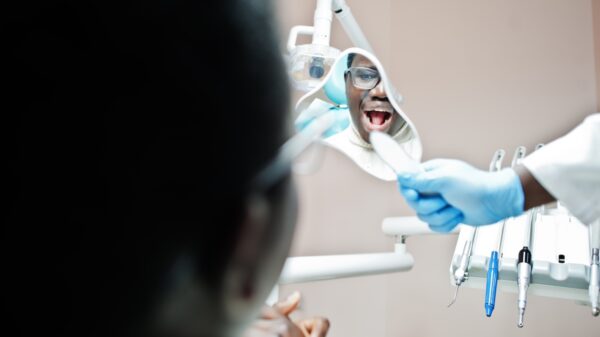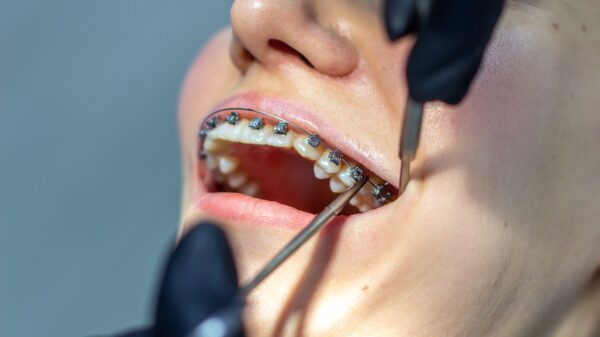How to Avoid Dry Socket
If you have found this article, chances are you have either just had your wisdom teeth removed or you’re about to. While this isn’t a fun dental procedure, it is a common one. I, had my wisdom teeth removed in my early 20’s. Thankfully I had done a lot of research and planning beforehand so I was ready. I was also able to successfully avoid getting a dry socket. If you don’t know what this is, let’s just say it is something you don’t want to get!
What is a dry socket and how to avoid it? Dry socket, also known as alveolar osteitis, is a condition that can occur after wisdom teeth removal. It is caused by the bone around the tooth not healing properly, which in turn leaves an open wound in the mouth. This can lead to pain, bad breath, and a pus-like discharge.
To avoid dry socket, there are a few things you can do:
- Make sure to follow your dentist’s instructions for post-operative care.
- Avoid smoking or drinking alcohol.
- Avoid eating crunchy or sticky foods.
- If needed, use medicated mouth rinses (ask your dentist).
Although this condition is fairly common and treatable, it’s best to avoid it altogether. I’ll get into more details in this article so you are fully prepared!
 Causes Of Dry Socket
Causes Of Dry Socket
A dry socket is caused by a build-up of bacteria at the site where the tooth has been removed. It occurs when the blood clot that forms over the tooth root is disrupted or lost, leaving an open wound in its place that can lead to further complications such as pain and infection.
There are a few things that can increase your risk of developing this condition, including:
- Smoking or drinking alcohol
- Eating crunchy or sticky foods
- Not following your dentist’s instructions for post-operative care
- Retaining a poor diet
- Having diabetes
- If you have gum disease
If you are experiencing any of the symptoms listed above, it is important to get in touch with your dentist as soon as possible.
How To Know If You Have Dry Socket
The most common symptom of dry socket is pain. You might also notice that the area around the tooth has become sensitive to hot or cold foods and drinks.
Other symptoms can include bad breath, dark sticky blood in your saliva, pus-like discharge, bleeding gums, loose teeth, fever, swelling around the wound site.
The main reason you want to avoid getting a dry socket is that it is very painful! The pain can be anywhere from a dull throbbing to a sharp stabbing sensation.
It often worsens when you eat or drink and can make it difficult to sleep. The severity will depend on the individual but when you’re already healing from surgery, you don’t want any more discomfort.
Steps To Avoid Dry Socket
While dry socket may sound scary, it’s quite easy to avoid getting it. Again I was able to do this myself when I had my wisdom teeth removed by following these tips.
- Make sure to follow your dentist’s instructions for post-operative care.
- Avoid crunchy or sticky foods as these can dislodge the blood clot
- Rinsing your mouth regularly with water.
- Make sure to eat soft, moist foods after the surgery.
- Avoid smoking or drinking alcohol.
- Avoid eating crunchy or gum sticky foods.
- If needed, use medicated mouth rinses (ask your dentist).
How To Treat Dry Socket
If you have found yourself unfortunately with a dry socket, don’t worry! There are a few things you can do to treat it and ease your discomfort.
- Continue taking your antibiotics as prescribed
- See your dentist immediately so they can prescribe an antibiotic to fight infection
- Use medicated mouth rinses (ask your dentist)
- Elevate the affected area, apply ice or heat packs
If you do find yourself with a dry socket, try to stay calm. It’s not the end of the world and you’ll be back to your regular self in no time! It’s important to stay on top of this so it doesn’t get worse, but with these tips, it should heal quickly.
 When Dry Socket Is Most Likely To Occur
When Dry Socket Is Most Likely To Occur
A dry socket is most likely to occur 3-5 days after the tooth has been removed. However, it can occur at any time in the healing process so it’s important to be aware of the symptoms.
The mouth is most vulnerable to bacteria immediately after the surgery so following your dentist’s instructions is crucial.
Most people don’t need to worry about getting a dry socket if it’s been 5 or more days since the surgery. It typically takes about 10-14 days to heal completely after wisdom teeth removal.
Can Dry Socket Lead To More Serious Problems?
Yes, I’m afraid it can. If left untreated, dry sockets can lead to serious infections in the mouth or in the bone sockets where the wisdom teeth used to be.
If it gets very bad, you may need antibiotics injected directly into the bone. Plus, there’s no fun in having problems like that! This is why you should address and treat it as soon as possible. If the dry socket isn’t resolved within a few days, you should go back to your dentist.
How Does Dry Socket Happen?
When a tooth is removed, a blood clot is created to protect the tooth socket from air and bacteria. This blood clot usually dissolves on its own but it can’t dissolve if you don’t rinse your mouth enough after surgery, eat cold or crunchy foods, smoke cigarettes or take certain medications.
That’s why sometimes that blood clot will turn into a dry socket! The good news is, you can avoid it by following the steps in this article.
Dry socket happens when one of the following things occurs:
- Not rinsing your mouth enough after surgery
- Eating cold or crunchy foods for too long (crunchy and sticky foods)
- Smoking cigarettes
- Taking certain medications that
What Are The Symptoms of Dry Socket?
The symptoms of dry socket can vary from person to person, but may include:
- Pain that gets worse when you eat or drink.
- Bad breath.
- Pus-like discharge from the area where your tooth was removed (don’t confuse this with bleeding).
- Swelling in your face near the wound.
If you notice any of these symptoms, call your dentist right away!
Do Most People Get Dry Socket?
Again, this is different for everyone. About 15% of people who have their wisdom teeth removed will get a dry socket. So it isn’t something that should stress you out.
And it isn’t a side effect that should keep you from getting this procedure! Simply following your dentist’s aftercare instructions and resting is typically enough to avoid getting a dry socket.
What Else Can Go Wrong After Wisdom Teeth Removal?
In addition to the possibility of getting a dry socket, other things that can go wrong after wisdom teeth removal include:
- Pain that lasts more than a week.
- Swelling that doesn’t go down after a few days.
- Bleeding continues more than a few days after the surgery.
- An infection in the mouth or bone socket.
- Damage to the jawbone or other teeth.
Your dentist should give you a list of symptoms to watch out for so you know when it’s time to go back and see them. If any of these problems occur, don’t hesitate to make an appointment! Most of them can be treated fairly easily but they’re much easier to take care of if you catch them early.
 Why Do I Need My Wisdom Teeth Removed?
Why Do I Need My Wisdom Teeth Removed?
With all of this talk of complications, you might be wondering if getting your wisdom teeth removed is even worth it. Unfortunately for many people, it is an unavoidable procedure. You might need your wisdom teeth removed for any of these reasons:
- Wisdom teeth cause other teeth to become misplaced in the mouth.
- They’re hard to clean. This can lead to tooth decay and gum disease.
- They cause pain and inflammation in the jaw area as they start to come in.
- There’s not enough room for all 32 teeth, so wisdom teeth can crowd out other healthy teeth and affect their growth.
- They are impacted (stuck) and don’t have a clear path through your gums to your mouth. This can lead to infection.
If you have any of these problems, your dentist will likely recommend wisdom teeth removal. But remember, this is a common procedure with a low risk of complications. So don’t let that scare you!
How Can I Prepare For Wisdom Teeth Removal?
The best way to prepare for wisdom teeth removal is just knowing what to expect. If you handle the situation ahead of time, you don’t have to worry as much! Here are a few tips that may help:
- Make sure your dentist knows about any medications or supplements that you’re taking before the day of surgery.
- Be prepared for some pain and swelling after the surgery. Ibuprofen or Tylenol should help with the pain.
- Continue with your regular dental care routine up until the surgery. Taking good care of your teeth will help them stay healthy even after the wisdom teeth are removed.
Final Thoughts
A dry socket can be a pain, both literally and figuratively. But by following these tips you can easily avoid it and get back to your normal self in no time! Wisdom teeth removal doesn’t have to be a scary experience if you’re prepared.
Remember to always consult with your dentist about post-operative care instructions. And as always, if you have any questions or concerns, don’t hesitate to reach out to your dentist.













